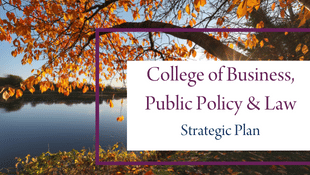-
Courses

Courses
Choosing a course is one of the most important decisions you'll ever make! View our courses and see what our students and lecturers have to say about the courses you are interested in at the links below.
-
University Life

University Life
Each year more than 4,000 choose University of Galway as their University of choice. Find out what life at University of Galway is all about here.
-
About University of Galway

About University of Galway
Since 1845, University of Galway has been sharing the highest quality teaching and research with Ireland and the world. Find out what makes our University so special – from our distinguished history to the latest news and campus developments.
-
Colleges & Schools

Colleges & Schools
University of Galway has earned international recognition as a research-led university with a commitment to top quality teaching across a range of key areas of expertise.
-
Research & Innovation

Research & Innovation
University of Galway’s vibrant research community take on some of the most pressing challenges of our times.
-
Business & Industry

Guiding Breakthrough Research at University of Galway
We explore and facilitate commercial opportunities for the research community at University of Galway, as well as facilitating industry partnership.
-
Alumni & Friends

Alumni & Friends
There are 128,000 University of Galway alumni worldwide. Stay connected to your alumni community! Join our social networks and update your details online.
-
Community Engagement

Community Engagement
At University of Galway, we believe that the best learning takes place when you apply what you learn in a real world context. That's why many of our courses include work placements or community projects.
Bachelor of Laws (LLB)
Bachelor of Laws (LLB)
The LLB is a graduate-level primary degree in law. Entry to the programme is restricted to university graduates who have achieved at least second class honours (a grade B average). The programme is designed to prepare graduates to work as legal professionals or in a law-related environment. Students will have the opportunity to study all the traditional core law modules as well as to tailor their programme to their own individual aspirations.
A distinctive feature of the LLB programme at NUI Galway is the emphasis that we place on the development of legal skills. All students are required to take a course on Legal Research and Methods and in their second and third years will be required to produce extended research papers. Further, students have the option of pursuing an independent research project under the close supervision of a faculty member. The School offers senior students the opportunity to participate in a competitive Moot Court competition and also allows final year students to take part in the most well-established clinical legal education programme in Ireland.

Application
Applications to the LLB programme should be made through the Postgraduate Application Centre. For more information, please visit the LLB course page.
Transferability to Canada
For Canadian students, studying law in Ireland is an attractive option. Canada and Ireland are both are English-speaking countries, and both have legal systems derived from English Common Law. Students at NUI Galway are also well placed to explore the great cities of Europe, including London and Paris - the birthplaces of the dominant legal traditions in Canada. LLB graduates are entitled to seek a Certificate of Qualification from the Canadian legal authorities which will entitle them to sit the bar exam in their desired province (see below). An Irish legal education provides an excellent foundation for Canadian students who wish to qualify as an attorney.
Since 2005, the Law School has welcomed thirteen Canadian students onto the LLB programme. Many of these students, on graduation returned to Canada and have since been called to the bar.




To read more about their experiences, please visit the graduate testimonials page.
Graduates of the LLB Programme who wish to practice in Canada may seek a Certification of Qualification from the National Committee on Accreditation (NCA) of the Federation of Law Societies of Canada. For more information, please see the NCA’s policies and guidelines available on their website .

















